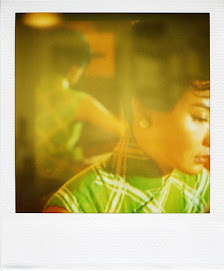
A continuation of the series whereby i put up stories of the ordeals of comfort women (Asian sex slaves of the Imperial Japanese Forces during WW2). Part One is in the archives so please have a look thru earlier posts...
Hah Sang Suk's Story:
I was born in Sosan, South Chungchung Province in 1928.I had one younger brother and one younger sister.My parents made and sold yot(Korean sweet).I was sent to primary school but hated studying.In my third year of primary school, my father contracted pneumonia and died.My family was left with no money and my mother sold the inn she had managed to her sister, remarried, and moved to Yesan.At the age of twelve, I began work taking care of children in Jinnampo.After doing childcare for a year, I went to work in a factory.One day in 1944, when I was sixteen, I went to play at a neighbouring friend’s house and found the older girl wearing nice clothes and makeup.I asked how shed had earned the money, and she answered that she had gone to work in a Japanese factory.I suggested that this time, when she went to Shanghai, we go together.She agreed, and two days later a Korean man came looking for us at home.The man asked whether we wanted to go to China or Japan, and we answered China.my mother said Manchuria was too far and told me not to go, but I insisted on going.It was sometime in June when I left.The Korean man took us as far as Kyongsong, and we went to an inn near Jangchungdan.The inn was run by a couple, and there were already five other young women there who were older than me.Later, there was a total of about forty women, most of whom came from Kyongsang Province.The older ones said that women who went away did welcoming calls of “heitai (soldier)”, sang, and made condolence visits.The couple who ran the inn gave me the name “Kimiko”.I got on a train carrying soldiers and left Kyongsong.I went through Pyongyang and Tenjin and arrived at Nanjing.Because I had had to transfer trains in Tenjin, I slept all night. I spent about two weeks in Nanjing, rode on a boat, and spent another two weeks in Wuhu, before finally going to Wuhan.There were also soldiers on the boat, but all of the civilians were Korean.It was around December 1944 when I got out at Hankou.After a thirty minute walk, I and the other forty women arrived at Jokgyong village.Twenty of us went into some kind of house, named "Sanserio".The proprietors were from Pyongyang.When we first entered, we were examined by a doctor.We were given medicine, and injections to prevent pregnancy.We were presented to the the military department reponsible for ‘comfort stations’, and with the permission slip stating that women had to be older than eighteen was presented, my age was raised to eighteen.The ‘comfort station’ had two storeys, and was the third house in Jokgyong village.There were about twenty rooms, all with tatami floors.First, three Japanese soldiers came in, and after that, it was only soldiers.Usually, ten to fifteen soldiers came each day.If the soldiers gave money to me, I gave it to the owners in exchange for condoms and tissue.The amount was about one or two Chinese yuan, and the managers kept record of it in an account book.On Sundays the soldiers waited in lines outside.Each soldier was alloted about one hour.When I refused to allow a soldier to go twice, I was sometimes beaten.¡¡Some soldiers showed up drunk and threatened to kill me.¡¡I fought with those who refused to wear a condom.If a soldier was dissatisfied with any of the women, he complained directly to the proprietor who then beat and kicked that woman.Of the military units of the time, I remembers "Sakura unit".There was a bathhouse. After servicing a soldier, I went to the bathhouse and washed with medicated water.Every Monday I went to a hospital in Jokgyong village and was checked for sexually transmitted diseases.On the day before the examination, the groups of women examined each other with a device that resembled a duck’s bill (a speculum).The owner hated it if anyone had contracted a disease so they covered cotton wool with dust and swabbed themselves.This way, even if there was an infection, it was possible to pass the examination.Women who contracted syphilis were hospitalized and treated with the 606 injection.They usually recovered within fifteen days.There were no rest days, and the women couldn’t leave the brothel.Once a month, we went to a bathhouse outside the Jokgyong village’s iron gate.We were fed by Chinese people twice a day.The proprietors of the ‘comfort station’ bought us clothes and makeup but gave us no money.At first, I borrowed money for trainfare and clothing from the Korean man who brought me.He said that it would take three years of work to repay the loan.¡¡¡¡¡¡¡¡¡¡Then, one morning, I heard that Japan had lost the war.The Japanese women in the next house were crying.The moneyIhadreceived from the soldiers became useless and I threw it away.koreans gathered in Jokgyong village. I could now return to Korea, but wondering what I could do after going back with this body, I decided not to go.I remained in China, married a Chinese man who already had three children, and became their stepmother.I kept my Korean citizenship and still lives in Muhan, China.I wishes to visit my hometown, but because of citizenship problems it is a difficu¡¡lt process.
A link to a 20 min docu in Korean on the Korean Comfort Women: www.womenandwar.net/video/001/wmv




No comments:
Post a Comment